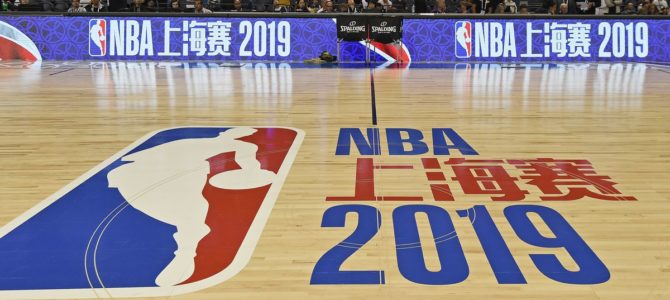In a truly remarkable statement, the National Basketball Association today claimed that questions of employees being silenced for criticizing China were “hypothetical,” less than a year after they were silenced.
The NBA appears to have memoryholed the October incident wherein Houston Rockets general manager Daryl Morey tried to offer his support for the then-ongoing Hong Kong protests. The NBA swiftly leaped into action, condemning Morey in blatant capitulation for its lucrative Chinese market share. It even went as far as to issue an internal memo requesting silence from its players and employees on any political speech about Hong Kong.
The statement came in response to questions from Sen. Josh Hawley, R-Mo., who has been pressing the organization on its ties to China.
.@NBA finally replies to me. Won’t criticize #China and won’t commit to protecting employees who criticize #China. Says it’s all “hypothetical.” Uh, remember Daryl Morey? pic.twitter.com/BaUNEtaTaw
— Josh Hawley (@HawleyMO) July 29, 2020
In the same statement, the NBA openly refused to condemn any of the genocidal communist dictatorship’s actions, which was remarkably poorly timed considering the news that broke Wednesday afternoon.
In a new investigative report released by ESPN, it was found that the NBA ignored complaints about widespread abuse within its “youth development program” it has run in China for four years. The CCP-endorsed program included three sites. One of these was in Xinjiang, the home of the Uighur minority currently suffering under a cultural genocide at the hands of the Chinese government.
One former NBA worker said the atmosphere at the site in Xinjiang was akin to “World War II Germany” and “a sweat camp for athletes.” Another coach directly said, “We were basically working for the Chinese government.”
Charges so far include that the NBA’s Chinese partners were physical abusing children in the Xinjiang program, and failing to provide promised education.
Furthermore, the NBA was actively discouraging players from speaking to reporters about abuse in the program, while asking employees to lie about why they wouldn’t comment. Numerous coaches resigned from their roles after witnessing the program.
The stories from Xinjiang, combined with the NBA’s failures both to condemn genocide and to acknowledge internal censorship, will do little to silence calls for reforms within the association’s business dealings with communist China — lucrative though they might be.









